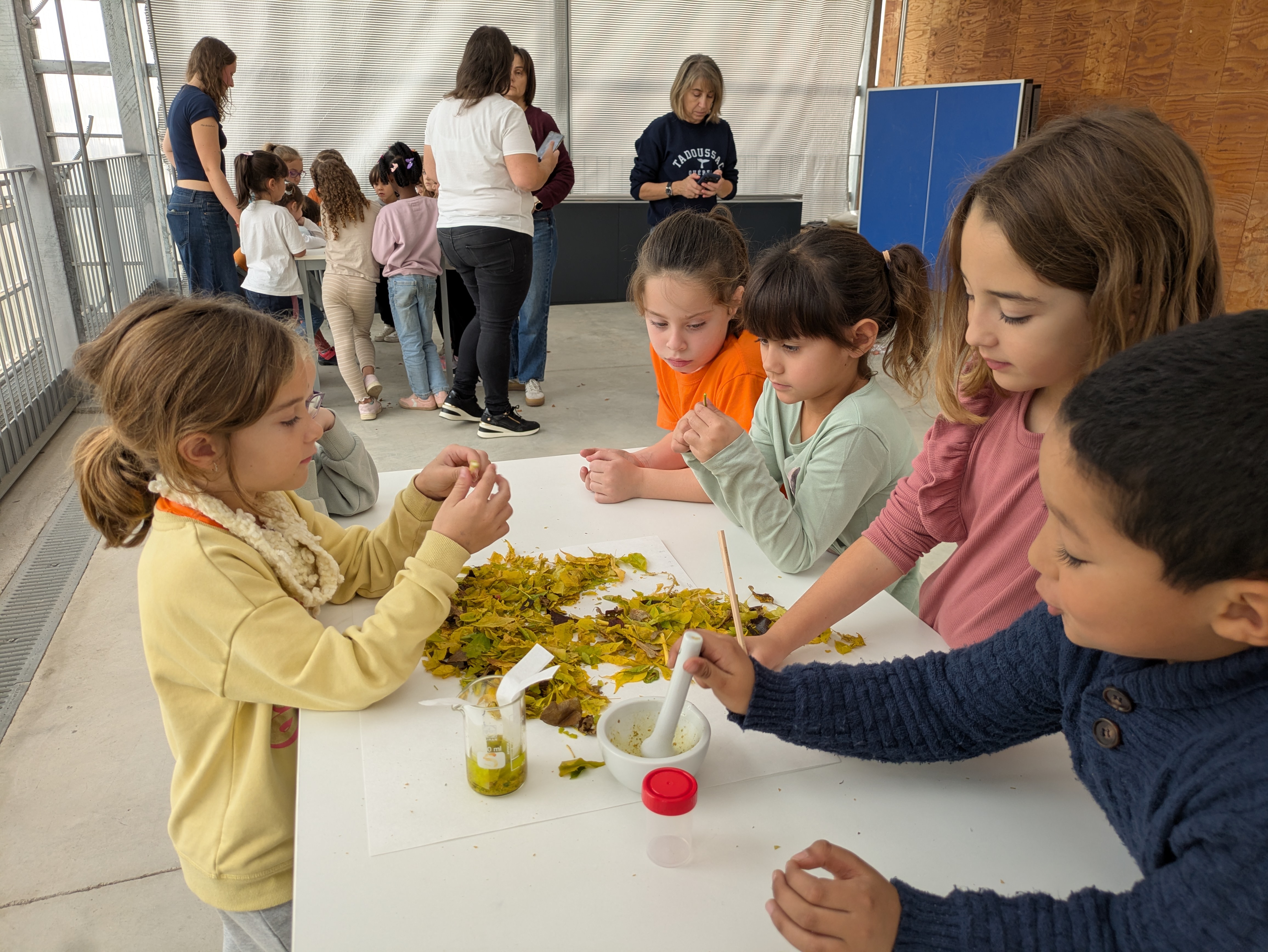The COALA project begins with six schools in Catalonia
The new COALA project will incorporate scientific knowledge on sustainable food and circular economy into the learning of primary school communities. To make this possible, the Sostenipra research group of ICTA-UAB and six educational centers have established the first network in Catalonia dedicated to collaborative work and knowledge exchange.

In the field of environmental research, a large amount of scientific knowledge is generated with the aim of advancing the transformation of Catalan society in the face of climate change. How to produce and consume food in cities in a more environmentally friendly way is one of the questions addressed by the Sostenipra research group for more than 15 years. The knowledge resulting from their work offers opportunities to understand how to make the food system more circular and with a lower impact on global warming, toxicity, or the depletion of resources such as energy, water, and materials. Examples of circular practices studied and developed are diverse, ranging from the recovery of human urine to produce fertilizers to the management of food waste in households. Much of the group’s research is carried out in a unique and innovative context: one of the first rooftop greenhouses integrated into buildings, such as the ICTA-ICP building.Transferring this knowledge, raising awareness, and promoting its implementation in the real world is now more vital than ever. To achieve this, a close and innovative relationship between science and society is needed, one that generates trust and proximity to scientific knowledge. In this sense, one of the sectors with the greatest potential is the education sector. The reasons are diverse and equally critical:
- it is necessary to adapt the facilities of educational centers to a changing climate (e.g., for better use of water, energy, and food),
- it is necessary to exploit the potential of school gardens as a learning resource,
- more resources are needed to integrate knowledge about sustainability into learning activities, and
- it is necessary to ensure that future generations have environmental awareness from childhood.
For all these reasons, the challenge posed by COALA is aimed at generating a transformative impact in the schools of Catalonia.
What does COALA consist of and who is part of the project?
The COALA project aims to promote the integration of scientific knowledge on sustainable food and circular economy into primary education learning projects. The project intends for schools to acquire knowledge about the most recent research in this field in order to include related activities in their learning proposals. In this way, COALA seeks to be a network of close and mutual support between schools and a research team, and among the schools participating in the project. Thus, it aims to support the transformation of schools in the educational field by offering resources from the scientific field that foster awareness, curiosity, and inquiry about resource consumption in food production.
Currently, the COALA network is composed of the Sostenipra group of ICTA-UAB and six educational centres with different geographic and socio-economic profiles.
The COALA centres are:
- La Pau School in Sant Sadurní d’Anoia (Alt Penedès)
- Les Vinyes School in Sant Cugat Sesgarrigues (Alt Penedès)
- Garbí Pere Vergés Schools in Esplugues de Llobregat (Baix Llobregat) and Badalona (Barcelonès)
- Nostra Llar School in Sabadell (Vallès Occidental)
- Enric Tatché i Pol School de Ripollet (Vallès Occidental)
For 18 months, the COALA network will co-create activities from a scientific method perspective according to the needs of each centre and student group. Some examples include experiments in school gardens, the integration of innovations into classroom curricula, and scientific activities at ICTA-UAB. In addition, exchange sessions among teachers will be held, and schools will be paired to facilitate interaction between students.
What results are expected?
COALA aims for the activities co-created with each school to endure in the long term and serve as an example for other centres. To this end, the cases of the various schools will be detailed, examples of classroom activities will be shared, and good practices and advice for teachers will be illustrated. Schools interested in participating will be welcome to join the network.
What are the first steps?
The first step of the project was an initial meeting among all participating entities. On October 13, representatives of the teaching staff and management teams of the six schools met at the ICTA-UAB facilities. During the meeting, a co-creation workshop was held to share Sostenipra’s research and identify the interests of the schools.
More information coming soon at: www.fertilecity.com
Funding
The COALA project: Co-design and integration of scientific and learning projects on sustainable food and circular economy in school communities (2024 IMPAC 00011) has received funding from the Agència de Gestió d'Ajuts Universitaris i de Recerca of the Generalitat de Catalunya (AGAUR). It is part of a call for the promotion of the social impact of knowledge generated by universities and other agents of the research, development, and innovation system in Catalonia (IMPAC 2024). It will be carried out from September 2025 to March 2027.